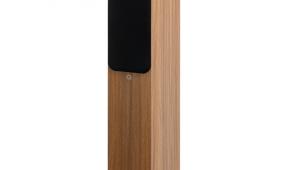Steve Winwood: Arc Of A Diver Page 2
Winwood and Jennings proved to be a match made in heaven, natural collaborators who each instinctively understood where the other was coming from. Winwood confirms that 'We didn't discuss what the song was about. Will just came up with the lyric, and it was right for me, right for him, and right for the song'. Recording of the track, however, didn't go entirely to plan. Winwood originally recorded drums at the very beginning of 'While You See A Chance' but then accidentally erased them. After numerous failed attempts to recreate the drum track, a synthesised introduction was patched in to replace it. Happily, for many fans, that intro became a favourite part of the song.
Back at the start of the '80s, mainstream rock listeners were still unfamiliar with synthesisers and, although it may be hard to believe now, Winwood's punchy solo in 'While You See A Chance', executed on a Multimoog using what he describes as a 'fairly square waveform', was thought by many fans to be a saxophone.
Career Boost
'I did use a filter pedal to give it kind of a phased texture,' he explained to Bob Doerschuk of Contemporary Keyboard in 1981. 'I've found that synthesisers can very easily lack natural sounds, so you need some kind of chorus effect to fatten the tone up and give it some life.'
Placed as the opening track on Arc Of A Diver, the uplifting, optimistic 'While You See A Chance' became the song that totally reinvigorated Winwood's career. It peaked at No 7 on the Billboard Hot 100 in April 1981 and eventually secured a million-play award in 1988.
Jennings and Winwood showed their versatility when it came to their other collaborations, with the shuffle rhythm of 'Night Train' conjuring up vivid images of a train hurtling through the dark and affording Winwood a chance to cut loose on guitar, whereas the sinuous 'Spanish Dancer' combines the sounds of acoustic and electronic instruments to impressive effect.
![]()
Free Diving
Winwood's decision to play every instrument on Arc Of A Diver – keyboards, acoustic and electric guitars, mandolin, bass, drums, and percussion too – was something which he saw as a challenge. 'People have done albums like that before. But to me they sound like an overdubbed album. I worked hard at trying to make it sound like a band.'
He also saw making the music on his own as potentially liberating him from the need to compromise with other band members and – importantly – working out cheaper than recording in an expensive studio. Unfortunately it didn't quite happen that way.
'There was really so much involved with doing the different parts, I found that if I got bogged down with one particular aspect there was always so much to be done that I would leave it and spend a week on something else. I found that I could get back to this other piece and say "of course, that's exactly what to do".' Inevitably, though, this method proved inordinately time-consuming.
Indeed, the sessions dragged on for so long that his bank account dwindled to a worryingly low level. 'The record company was becoming almost embarrassed to ask how it was all going. I knew that if the album didn't make it, I'd have to sell up, maybe move to a little flat or join a gypsy caravan.'
Arc Of A Diver was eventually released by Island on the 31st of Dec 1980. Britain was still in the grip of punk, so it didn't do well here, stalling at No 13, As a Sounds reviewer pointed out, 'This album's too classy for 1981', while Melody Maker dismissed it as 'the sound of a man treading water'. But the NME at least saw that the album had 'no pretensions to be anything more or less than a collection of songs, sweet and (not always quite so) simple'.
After it launched in America, however, Winwood's fears of joining a gypsy caravan proved unfounded. Arc Of A Diver peaked at No 3 in Billboard and went on to achieve platinum status. As Winwood told his biographer, Chris Welch, in 1988 'That album was a big turning point for me. It gave me a direction in music and some confidence in my own work. And it gave me the means to continue'.
















































